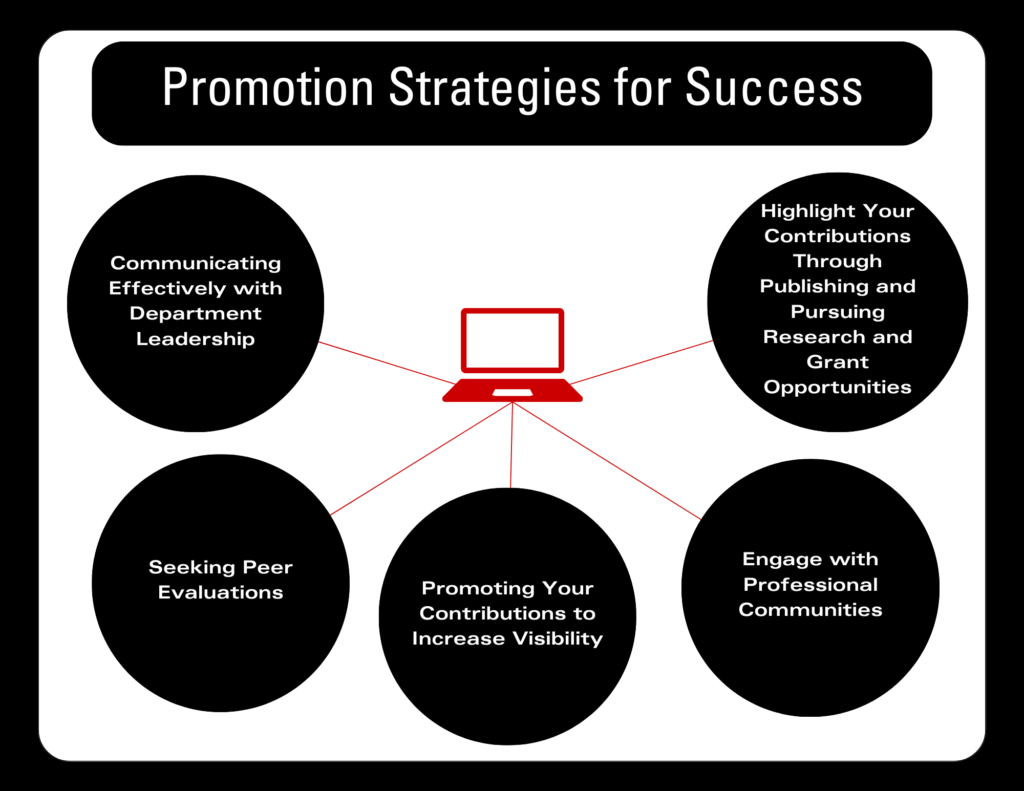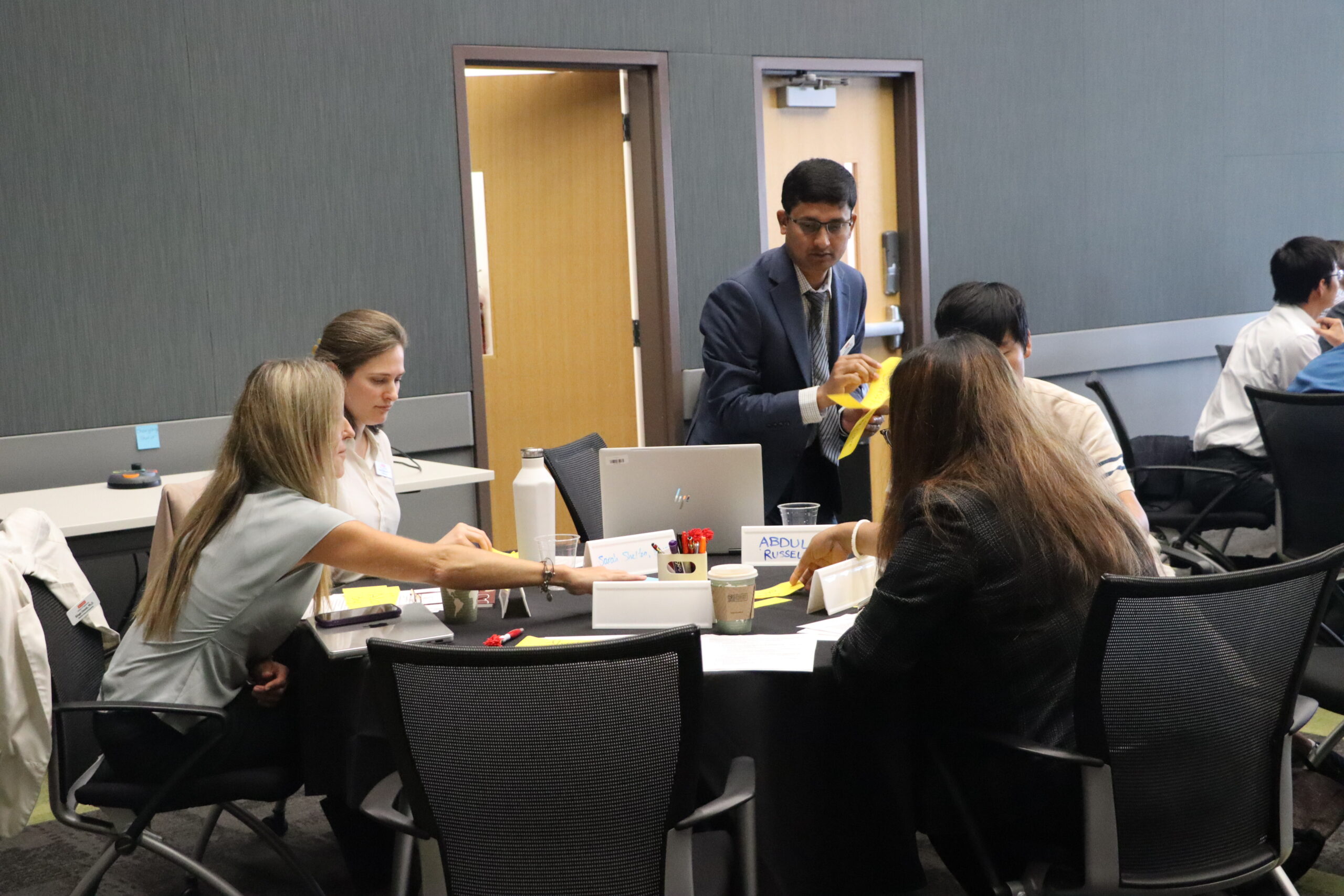Achieving Promotion Success for Professional Track Faculty: Insights from Associate Dean Joel Ducoste
As the RPT season gets underway, Associate Dean Joel Ducoste offers insights for College of Engineering Professional Track faculty on navigating promotion, emphasizing the importance of strategic preparation and the active promotion of contributions.

Professional Track Faculty Considerations
For professional track faculty, career advancement is an option but not mandatory. These advancements, however, offer growth opportunities and raise your visibility to your department colleagues on the important contributions and impact you are making to our students and potentially nationally when you are involving novel strategies for student engagement and success.
Navigating your academic career involves important engagement and proactive steps. Here are five key strategies that can help advance your academic career and achieve important professional milestones: communicating effectively with department leadership, seeking peer evaluations, promoting your contributions to increase visibility, engaging with professional communities, and publishing your contributions while pursuing research and grants.

Communicating Effectively with Department Leadership
Your relationship with your department head can be pivotal in shaping your career trajectory. One of the most important steps you can take is to annually review your Statement of Faculty Responsibilities (SFR) and outlining completed and planned contributions within each realm. Your SFR not only outlines your official duties but also sets the stage for meaningful conversations about your goals. Reviewing your SFR ensures you remain aligned with departmental expectations while carving out opportunities for growth. Make sure to listen carefully to the feedback received during these conversations to consider the next steps you will take to move your academic career forward. Speak candidly with your department head about your promotion timeline, making sure to discuss your eligibility and the expectations you need to meet for promotion.
Seeking Peer Evaluations
Feedback from peers can be helpful, especially when it comes to teaching. Routine, formal evaluations by colleagues not only provide constructive insights but also contribute to your teaching portfolio, which can be critical for promotions and teaching award considerations. Beyond peer evaluations, consider requesting a milestone review from the Departmental Voting Faculty (DVF). A milestone review offers a critical checkpoint in your promotion journey, allowing you to make adjustments if needed and making sure that you’re on track to meet departmental standards.
Promoting Your Contributions to Increase Visibility
Actively promoting your “high impact” contributions is crucial for ensuring your achievements are recognized. This could include publicizing innovative teaching methods, new research, or service projects that make a difference within the university or your discipline. Beyond your department, seek external validation by applying for, or encouraging nominations for teaching and advising awards. These accolades not only boost your visibility but also underscore the value of your contributions to the academic community.
Engage with Professional Communities
Professional societies are more than just a place to attend conferences—they’re a platform for leadership and networking. Organizations like the American Society for Engineering Education (ASEE) offer numerous opportunities to lead committees, or run for office at regional or national levels. By taking on leadership roles, you position yourself as an influencer in your field, fostering connections that can lead to collaborative research, grant opportunities, and increased visibility.
Presenting at conferences, whether on your teaching methods or research, is another avenue for engagement. Sharing your expertise on a larger stage not only enhances your profile but allows you to learn from others, inspiring new ideas to bring back to your institution.
Highlight Your Contributions Through Publishing and Pursuing Research and Grant Opportunities
A successful academic career includes balancing teaching with research, and publishing is a key part of that equation. Identify relevant educational or trade journals in your field and submit your work. Whether you’re writing about pedagogical techniques or conducting research within your discipline, publications can significantly enhance your reputation and open doors for collaboration. Note that the innovation you contribute in the class may take the field of engineering education in a new direction. Others in the profession would want to know what you have learned.
Don’t only document your new strategies, consider exploring grant opportunities. Agencies like the National Science Foundation (NSF) offer funding for both research and educational initiatives. Pursuing grants not only strengthens your academic career but also demonstrates a commitment to advancing knowledge in your field.
Finally, get involved in course and curriculum committees, or take on advising coordination, including ABET accreditation efforts. Such involvement not only provides practical experience but also shows a commitment to the academic infrastructure of your department, which can be a critical factor in promotion decisions.
Catch up on Our Recent RPT Webinar
For additional guidance, don’t forget to check out the recording of our recent RPT webinar, where Associate Dean Ducoste and other faculty leaders discussed these processes in depth. This session covers valuable insights and common questions about navigating promotion and tenure in the College of Engineering.
If you missed it, you can access the recording below:
For any specific questions or further assistance, feel free to reach out to Associate Dean Joel Ducoste directly at jducoste@ncsu.edu.
- Categories:


